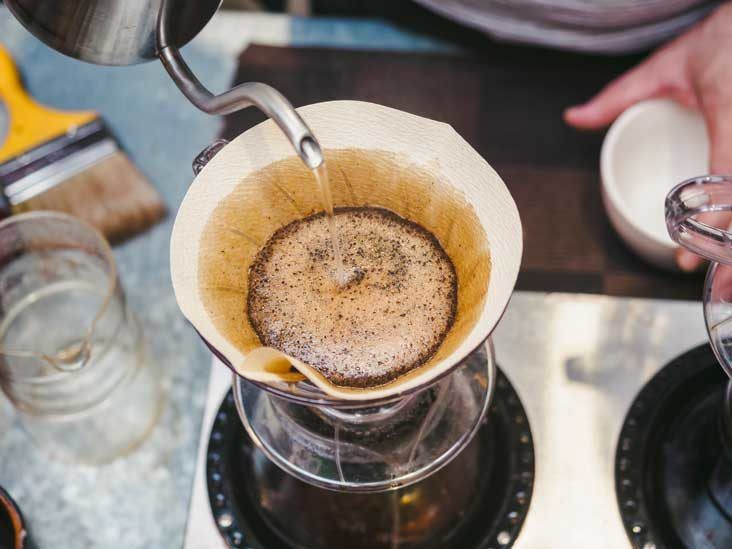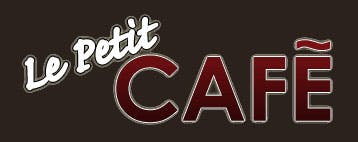Eating Coffee Beans: Health Effects And Risks

Coffee beans have been traditionally consumed for their potential health benefits and energy-boosting properties. However, it is important to understand the potential risks associated with eating coffee beans. Excessive consumption of coffee beans can lead to side effects such as increased heart rate, insomnia, and digestive issues. The high caffeine content in coffee beans can also be harmful to individuals with certain health conditions such as anxiety disorders or high blood pressure. It is recommended to consume coffee beans in moderation and be mindful of their caffeine content to avoid any potential negative health effects.
Myth: Coffee Beans As A Snack
Some people believe that coffee beans can be consumed as a snack, similar to other types of nuts or dried fruits. However, this is a myth. While coffee beans may provide a small amount of energy and some antioxidants, they are not intended to be eaten in their raw form. Coffee beans are extremely bitter and have a hard texture, making them difficult to chew and digest. Additionally, consuming large amounts of coffee beans can lead to excessive caffeine intake, which may cause negative side effects. It is best to enjoy coffee beans in moderation, as a part of your overall coffee consumption.
Reality: Potential Risks Of Consuming Coffee Beans
Consuming coffee beans can pose potential risks if not done in moderation. While coffee beans do contain antioxidants and caffeine, excessive consumption can lead to negative side effects. The high caffeine content in coffee beans can cause jitters, heart palpitations, and insomnia. Additionally, consuming large amounts of coffee beans can lead to an excessive intake of calories, sugar, and fat if they are chocolate-covered. Therefore, it is important to be mindful of portion sizes and to enjoy coffee beans in moderation as part of a balanced diet.
Coffee Bean Nutritional Value And Composition

Coffee beans are highly nutritious and contain various beneficial compounds. They are a good source of antioxidants, such as phenolic compounds and flavonoids, which help protect against oxidative stress and inflammation in the body. Coffee beans also contain important nutrients like vitamins B2, B3, and B5, potassium, and manganese. However, it is important to note that the nutritional composition of coffee beans may vary depending on factors such as the type of coffee bean, roasting method, and preparation. Therefore, it is essential to consider the specific nutritional information of the coffee beans you consume.
Myth: Nutritional Benefits Of Eating Coffee Beans
Coffee enthusiasts often believe that eating coffee beans provides additional nutritional benefits compared to drinking coffee. They argue that since coffee beans are the source of the brewed beverage, consuming them directly would provide a higher concentration of nutrients. However, it is important to note that the nutritional composition of coffee beans is similar to that of brewed coffee. While coffee beans do contain certain beneficial compounds like antioxidants and essential nutrients, the concentrations may not be significantly different from drinking coffee. Therefore, it is essential to consume coffee beans in moderation and consider them as part of an overall balanced diet.
Reality: Understanding The Nutritional Content Of Coffee Beans
Coffee beans contain a range of essential nutrients and bioactive compounds that have potential health benefits. They are a rich source of antioxidants, such as chlorogenic acids and polyphenols, which help protect against oxidative stress and inflammation. Coffee beans also contain small amounts of vitamins and minerals like potassium, magnesium, and niacin. However, it is important to note that the nutritional composition of coffee beans can vary depending on factors like the type of coffee beans, the roasting process, and the brewing method. Therefore, while coffee beans do offer some nutritional value, it is best to consume them in moderation as part of a balanced diet.
Ways To Consume Coffee Beans

There are various ways to consume coffee beans. Some people enjoy eating them as a snack, savoring the rich and intense flavor. Others prefer to grind the coffee beans and use them in brewing methods like French press or espresso. You can also include coffee beans in recipes such as baked goods or desserts for a unique twist. Additionally, coffee beans can be used to make coffee-infused liqueurs and beverages. However, it is important to remember to consume coffee beans in moderation and be aware of their caffeine content.
Myth: Various Ways To Enjoy Coffee Beans
Some people believe that there are various ways to enjoy coffee beans other than just drinking coffee. They may think that you can eat them as a snack, add them to smoothies, or use them in cooking and baking. However, it is important to know that coffee beans are not meant to be eaten whole. They can be extremely hard and difficult to chew, causing potential damage to your teeth. It is best to grind the coffee beans and use them in brewing methods like French press or espresso to enjoy their rich flavor and aroma.
Reality: Recommendations For Consuming Coffee Beans Safely
When it comes to consuming coffee beans, it is important to exercise caution and follow some recommendations to ensure safety. Here are a few guidelines to keep in mind:
- Moderation is key: Coffee beans are more concentrated than brewed coffee, so it is best to consume them in moderation to avoid excessive caffeine intake.
- Grinding and brewing: Instead of eating whole coffee beans, it is recommended to grind them and use them in brewing methods like French press or espresso. This allows for a more enjoyable and safe consumption experience.
- Be mindful of dental health: Chewing on whole coffee beans can be harmful to your teeth. By grinding them, you protect your dental health while still enjoying the flavor and aroma.
- Consider individual sensitivities: Some people may be more sensitive to the effects of caffeine. It is important to be aware of your own tolerance and make adjustments accordingly.
By following these recommendations, you can safely enjoy the flavor and benefits of coffee beans without compromising your health.
Effects Of Caffeine In Coffee Beans

Consuming coffee beans provides a significant amount of caffeine, which can have various effects on the body. Myth: Some believe that the caffeine in coffee beans can provide an immediate and long-lasting energy boost. Reality: While caffeine can indeed increase alertness and improve cognitive function, consuming too much can lead to negative side effects such as restlessness, increased heart rate, and difficulty sleeping. Moreover, caffeine affects individuals differently, and some may be more sensitive to its effects. It’s important to be mindful of your caffeine intake and listen to your body’s response to avoid any adverse effects.
Myth: Impact Of Caffeine In Coffee Beans On The Body
Many people believe that the caffeine in coffee beans can have a direct and immediate impact on the body. While it is true that caffeine can increase alertness and improve cognitive function, consuming too much can lead to negative side effects. These can include restlessness, increased heart rate, and difficulty sleeping. It is important to remember that caffeine affects individuals differently, and some may be more sensitive to its effects. Therefore, it is crucial to be mindful of your caffeine intake and listen to your body’s response to avoid any adverse effects.
Reality: Caffeine Content In Coffee Beans And Its Effects
Coffee beans contain varying levels of caffeine, depending on the type and roast. On average, an ounce of coffee beans can have about 94 mg of caffeine, although this can range from 30-240 mg. When consumed, caffeine stimulates the central nervous system, increasing alertness and focus. It can also improve athletic performance and enhance mood. However, too much caffeine can lead to negative side effects such as restlessness, increased heart rate, and difficulty sleeping. It is important to consume coffee beans in moderation and be aware of the caffeine content for optimal benefits.
Popular Coffee Bean Recipes And Dishes

Coffee beans are not only enjoyed as a beverage but also as an ingredient in various recipes and dishes. One popular way to incorporate coffee beans is by making coffee-infused desserts, such as tiramisu or coffee-infused ice cream. Additionally, coffee beans can be used in savory dishes like coffee-rubbed steak or as a flavor enhancer in sauces and marinades. Some people even enjoy adding crushed coffee beans to their chocolate chip cookies for an added caffeine kick. The versatility of coffee beans allows for endless culinary creativity and experimentation.
Myth: Coffee Beans In Culinary Creations
Some may believe that coffee beans are only used for making coffee and are not commonly found in culinary creations. However, this is a myth. Coffee beans can actually add a unique and complex flavor to a variety of dishes and desserts. Chefs and home cooks alike have experimented with incorporating coffee beans into recipes such as sauces, marinades, and even spice rubs for meat. Additionally, coffee beans can be ground and added to baked goods like cakes and cookies, enhancing their flavor with a subtle coffee taste. So, coffee beans can definitely be a versatile and exciting ingredient in the kitchen.
Reality: Exploring Various Coffee Bean Recipes
Exploring various coffee bean recipes can open up a world of culinary possibilities. Coffee beans can be used in both sweet and savory dishes to add a unique flavor profile. For a sweet treat, try incorporating ground coffee beans into cakes, cookies, or ice cream for a rich and aromatic twist. In savory recipes, coffee beans can be used as a rub for meats or added to marinades and sauces for a deep, robust flavor. Coffee beans can even be ground and used as a seasoning for vegetables or sprinkled over roasted nuts for an added crunch. The possibilities are endless when it comes to incorporating coffee beans into your dishes.
Conclusion

In conclusion, while coffee beans can be safely consumed, it is important to exercise moderation due to their concentrated levels of nutrients and caffeine. The myth that coffee beans can be eaten as a snack should be approached with caution, as excessive consumption can lead to side effects. However, there are potential benefits to snacking on coffee beans, such as increased antioxidant intake. It is crucial to be informed about the nutritional content and effects of caffeine in coffee beans. By understanding the reality of eating coffee beans and following recommendations for safe consumption, individuals can enjoy the unique flavors and potential health benefits they offer.
Debunking Myths And Summarizing The Reality Of Eating Coffee Beans
Coffee beans have long been the subject of myths surrounding their consumption. It’s time to set the record straight. While it is true that coffee beans can be eaten, they should not be treated as a snack. Excessive consumption can lead to side effects due to the high levels of caffeine and concentrated nutrients. However, when consumed in moderation, coffee beans can provide potential health benefits, such as increased antioxidant intake. It is important to understand the nutritional content and effects of caffeine in coffee beans to make informed decisions for safe consumption.
FAQs On Consuming Coffee Beans
- Can you eat coffee beans without brewing them?
Yes, coffee beans can be eaten without brewing them. However, keep in mind that they have a strong and intense flavor. - Can eating coffee beans give you a caffeine boost?
Yes, eating coffee beans can provide a caffeine boost as they contain a significant amount of caffeine. It is important to consume them in moderation to avoid consuming too much caffeine. - Are there any health risks associated with eating coffee beans?
Excessive consumption of coffee beans can lead to side effects such as increased heart rate, jitteriness, and difficulty sleeping. It is important to monitor your caffeine intake and listen to your body’s response. - Can eating coffee beans help with weight loss?
While coffee beans may slightly boost metabolism and suppress appetite, they should not be relied upon as a weight loss solution. A balanced diet and regular exercise are essential for sustainable weight loss. - Can eating coffee beans be a substitute for drinking coffee?
Eating coffee beans can provide some of the benefits of drinking coffee, such as increased alertness and focus. However, the experience and effects may not be the same as consuming a brewed cup of coffee.
Remember, it is always recommended to consult with a healthcare professional or nutritionist before making any changes to your diet or consuming coffee beans for specific health reasons.
FAQ About Can You Eat Coffee Beans? Myth Vs Reality
Q: Can you eat coffee beans?
A: Yes, you can eat coffee beans. However, it’s important to consider the potential risks and benefits before consuming them.
Q: Are coffee beans safe to eat?
A: While it’s safe to eat coffee beans in moderation, consuming large quantities may lead to negative side effects such as gastrointestinal issues and caffeine overdose.
Q: What are the health benefits of eating coffee beans?
A: Eating coffee beans in moderation may provide antioxidant benefits and a slight energy boost due to their caffeine content.
Q: How should you eat coffee beans?
A: Coffee beans can be eaten whole, ground into a powder, or coated in chocolate for a tasty treat. It’s important to consume them in moderation to avoid potential side effects.
Q: Can eating coffee beans replace drinking coffee?
A: While eating coffee beans can provide a different experience than drinking coffee, it may not fully replace the effects of drinking a brewed cup of coffee due to differences in caffeine absorption.
Q: Are there any risks associated with eating coffee beans?
A: Some risks of eating coffee beans include caffeine overdose, digestive issues, and potential pesticide exposure. It’s advisable to consult a healthcare professional before making them a regular part of your diet.
Q: What is the myth surrounding eating coffee beans?
A: One common myth is that eating coffee beans can result in the same health benefits as drinking brewed coffee, which may not be entirely accurate due to differences in digestion and caffeine absorption.

Le Petit Cafe is more than just a coffee shop; it’s a cozy haven for coffee enthusiasts and food lovers. We are located at 26499 Jefferson Ave. Suite F, Murrieta, CA, in the heart of California, our café has been serving delightful coffee, delicious pastries, and savory meals since [year of establishment]. Our story begins with a passion for creating a warm, inviting space where friends, families, and colleagues can gather to savor life’s simple pleasures. The aroma of freshly brewed coffee and the sound of frothing milk greet our guests as they enter our welcoming atmosphere.